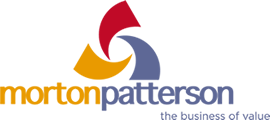Recently, I encountered a profound story shared by Benjamin Zander, the celebrated author of The Art of Possibility. In this story, he conveys a powerful lesson about leadership and accountability that profoundly resonates with me.
Zander took a group of students from Boston to London, where he managed to secure highly coveted tickets to a concert—an opportunity he described as incredible, life-changing, and unforgettable. However, to his dismay, many students didn’t attend.
He was left feeling a mix of fury and embarrassment towards his students and in front of the host who had provided the tickets.
When Zander recounted the incident to his wife, her response was surprising and enlightening: “What didn’t you do? Did you not tell them how exciting it would be?
Did you explain how prized these tickets were and why this experience was important?” This question, deceptively simple, holds profound implications for leadership.
It shifts the focus from blaming others to introspective self-assessment. It’s easy to identify what others might have done differently, but actual growth occurs when we ask ourselves, “What didn’t I do?”
Reflecting on Zander’s experience, I’ve applied this perspective to various coaching conversations. For example:
- What didn’t I do to effectively communicate the importance of achieving our targets?
- What didn’t I do to persuade department heads that reducing staff costs and shedding some clients was necessary?
- What didn’t I do to support my team adequately when they struggled to perform?
- What didn’t I do to nurture and improve my relationship with my significant other?
These are challenging questions, yet this approach isn’t about assigning blame; it’s about embracing responsibility. When things don’t go as planned, our instinct often leads us to seek explanations outside ourselves.
But what if, instead, we turned inward? By examining our actions—or inactions—we can uncover gaps in our leadership. This practice of self-reflection lies at the heart of genuine accountability.
Imagine the possibilities if we could prevent future missteps by consistently asking ourselves, “What didn’t I do?”
This question compels us to take ownership of our role in every outcome. It’s not about finding fault; it’s about encouraging proactive thinking, continuous improvement, and leading by example. It’s a commitment to always strive for better—for ourselves and our teams.
Such accountability fosters personal growth and sets a powerful precedent for our teams. Leadership isn’t just about guiding others; it’s about relentlessly challenging ourselves to improve, to do more, and to take full ownership of the results of our efforts.
So, the next time you face a challenge, resist the urge to point fingers. Instead, ask yourself: What didn’t I do?
I challenge you to apply this question in your leadership roles and witness the profound impact it can have—not only on your leadership but also on the success and cohesion of your team
